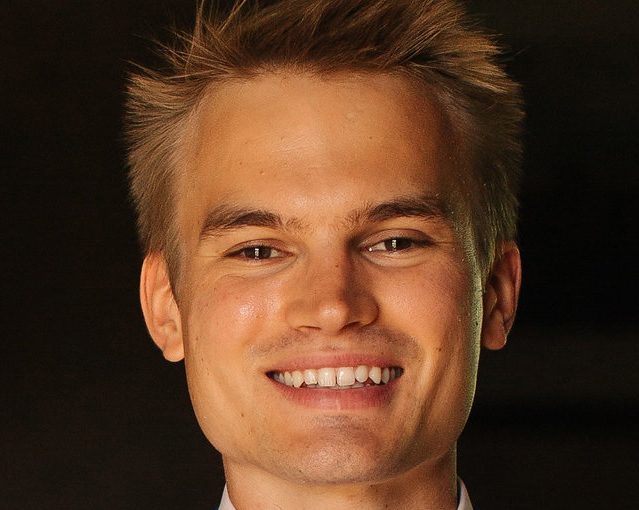- Personal website:
https://sites.google.com/view/pe-collignon
- Email address:
pierre.edouard.collignon@ensae.fr
- Research description:
Pierre-Edouard a doctoral student at CREST – École polytechnique. His main research interests are Macroeconomics and Public Finance with a special focus on time inconsistency issues in optimal dynamic fiscal policy. His secondary research interests are Welfare Economics and Population Ethics.
- JMP:
Title: No Regret Fiscal Reforms
Link: https://drive.google.com/file/d/18gMtZrXqSgDy32_TwN_BLGzb-gk3bmCq/view?usp=sharing
- JMP Abstract:
How should fiscal policy react to shocks ex post while preserving incentives to work and save ex ante? The standard solution involves a commitment to a contingent policy, whereby the initial government sets all the policies for all future states of the world. Contingent policies are unrealistic. As an alternative, this paper introduces ”No Regret Fiscal Reforms”: the government may freely change its fiscal policy provided households do not regret their past decisions. Hence flexibility is provided and incentives to work and save are preserved. Such reforms can be achieved by changing taxes on both capital and labour such that wealth effects exactly compensate substitution effects. In a representative agent framework, I study how a benevolent government optimally uses No Regret fiscal reforms and compare them to optimal contingent policies. Both approaches yield very similar allocations and optimal No Regret reforms only lead to small welfare losses. Second, I consider Near-Rational Expectations i.e the government recognizes that agents’ beliefs about the distribution of shocks may be different from its own and wants to implement a policy robust to this unknown difference. No Regret fiscal reforms are fully robust to this departure from rational expectations. Finally, I study No Regret fiscal reforms with wealth and skill heterogeneity.
Julien Monardo
- Personal website:
https://sites.google.com/site/julienmonardoeconomics
- Email address:
julien.monardo@ensae.fr
- Research description:
He is a micro-economist with research interests in empirical industrial organization and structural demand estimation. In his research, he develops methods to estimate substitution patterns, i.e., how consumers substitute across differentiated products.
- JMP:
Title: Measuring Substitution Patterns with a Flexible Demand Model
Link: https://drive.google.com/file/d/1D2OiyqSZVTKUs4HkxEH4Nb9tYMcJ29ag/view?usp=sharing
- JMP Abstract:
Many empirical studies require estimating how consumers substitute across differentiated products. Examples can be found in a wide range of fields of economics, including environmental economics, health care economics, industrial organization, and international trade. In this paper, I propose a computationally simple, easy-to-implement, flexible approach to estimate substitution patterns determined by how close products are in product characteristic space. To this end, I rely on an inverse market share model that (i) is consistent with utility maximization; (ii) does not use any specific assumptions about how substitution patterns depend on product characteristics; and (iii) is agnostic about individual consumer behavior. I find that my approach only requires solving a convex quadratic program with a small number of linear inequality constraints. I further find that it can outperform the state-of-the-art BLP approach pioneered by Berry, Levinsohn, and Pakes (1995), which accommodates flexible substitution patterns by using the random coefficient logit model. In particular, this occurs when (i) there is complementarity in demand; (ii) BLP is misspecified about its random coefficients; and (iii) consumers choose baskets of products. Lastly, I apply my approach to a well-known dataset for breakfast cereals and compare it to BLP. I find that it provides a better fit to the data than BLP. I further find that it yields similar median own-price elasticities, and higher median cross-price elasticities, markups, and merger price effects.
Gwen-Jiro Clochard
- Personal website:
https://sites.google.com/view/gwen-jiro-clochard/
- Email address:
gwen-jiro.clochard@ensae.fr
- Research description:
His research lies at the intersection of development and experimental economics. Specifically, he investigates the effect of personal contact on trust and between groups.
- JMP:
Title: Improving the Perception of the Police by the Youth
Link: https://drive.google.com/file/d/1ENP6dUnmOp0Mye01Q6pzT567C37tng0u/view
- JMP Abstract:
While previous research has highlighted the positive consequences of a high trust in the police, parts of the French population exhibit a lack of trust toward the police. In this paper, I use a lab-in-the-field experiment in two high-schools in France to investigate the effect of a brief and controlled discussion – contact – between police officers and students on trust. Results indicate a positive effect of contact on trust at the individual level, i.e. toward the specific police officer met. The magnitude corresponds to an increase of approximately 0.4 standard deviation. However, the effect fails to translate to an increase in the police in general. A theoretical model of belief formation can shed light on why a single contact cannot be sufficient in case of prior – negative – interactions. This paper has implications for the most widely used policy to improve the perception of the police, namely community policing.
Position in Computer Science at ENSAI
ENSAI, the French graduate-level engineering school specialized in Statistics, Data Science and Economics, is currently inviting applications for a position as Associate or Assistant Professor in Computer Science and Machine Learning.
Position in Statistics at ENSAI
ENSAI, the French graduate-level engineering school specialized in Statistics, Data Science and Economics, is currently inviting applications for a position as Associate or Assistant Professor in Statistics.
Position in Quantitative Sociology
ENSAE Paris and CREST are currently inviting applications for a position of Assistant or Associate Professor in Quantitative Sociology. The appointment starts in September 2020 (negotiable). Conditions are competitive and according to qualifications.
Position in Statistics and/or Machine Learning
Position in Statistics and/or Machine Learning at ENSAE Paris‐CREST
ENSAE Paris and CREST are currently inviting applications for a position of Assistant or Associate Professor in Statisticsand/or Machine Learning.




